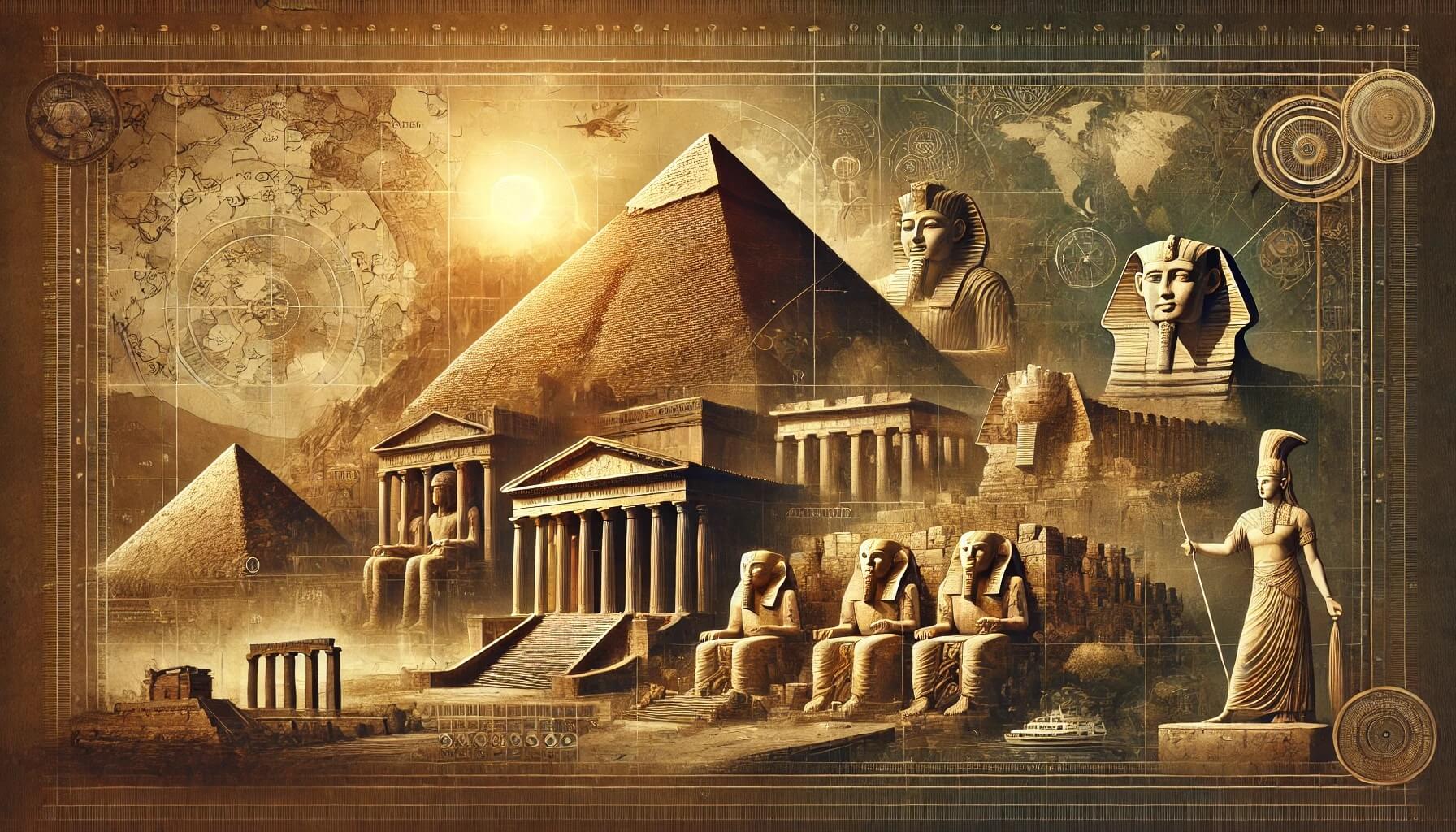Ancient civilizations laid the groundwork for many aspects of modern society, from government structures to technological innovations, cultural practices, and even everyday life. In this article, we explore how the achievements of ancient civilizations continue to influence our lives today.
1. Ancient Egypt: The Birth of Writing and Architecture
Ancient Egypt is one of the earliest and most influential civilizations in human history. Known for its impressive architectural feats, including the pyramids and the Sphinx, Egypt also contributed greatly to the development of writing, mathematics, and art.
- Hieroglyphics: The Egyptians created one of the earliest forms of writing, using hieroglyphics to document religious beliefs, royal decrees, and historical events. This system of writing influenced later forms of communication and record-keeping.
- Architecture: The grand architectural achievements of Egypt, such as the construction of the Great Pyramid of Giza, laid the foundation for later architectural advancements and continue to inspire awe today.
- Cultural Influence: Egyptian religion, art, and philosophy left a lasting imprint on later cultures, including those of Greece and Rome.
2. Ancient Greece: Democracy, Philosophy, and the Arts
Ancient Greece is often regarded as the birthplace of Western civilization, particularly in the areas of government, philosophy, and the arts. The Greeks’ contributions continue to shape modern society, particularly in democratic governance and intellectual thought.
- Democracy: The city-state of Athens developed one of the first forms of democracy, where citizens could participate in decision-making. Although the Greek system was limited compared to modern democracy, it laid the groundwork for democratic principles.
- Philosophy: Greek philosophers like Socrates, Plato, and Aristotle laid the foundation for Western philosophy, exploring topics such as ethics, logic, and metaphysics, which continue to influence modern thought.
- The Arts: Greek contributions to art and drama have shaped Western literature, theater, and sculpture. The concept of the “tragic hero” in drama, for example, remains a key part of modern storytelling.
3. Ancient Rome: Law, Engineering, and Governance
Ancient Rome was known for its innovations in law, governance, and engineering. Many aspects of Roman civilization have been passed down to the modern world and continue to influence political systems, legal structures, and infrastructure.
- Roman Law: Roman law became the foundation for many legal systems around the world. Concepts such as “innocent until proven guilty” and the right to a fair trial originated in Roman law and are now core principles of modern legal systems.
- Engineering and Infrastructure: The Romans were master engineers, building roads, aqueducts, and monumental structures like the Colosseum. Their engineering innovations continue to influence modern infrastructure and architecture.
- Republic and Empire: The Roman Republic’s system of checks and balances influenced the development of modern democratic governments, and the idea of an empire played a significant role in shaping later political structures.
4. Ancient China: Innovation and Philosophy
Ancient China is known for its technological innovations, philosophies, and contributions to global trade. Chinese inventions, such as paper, gunpowder, and the compass, continue to impact the modern world.
- Confucianism: Confucian philosophy has had a profound influence on Chinese society and the broader East Asian region. The emphasis on family, respect for authority, and moral behavior continues to play a key role in modern Chinese culture.
- Technological Advancements: Ancient Chinese inventions like papermaking, the compass, and gunpowder revolutionized the world, influencing everything from communication to warfare and navigation.
- Silk Road: The Silk Road connected China to Europe and the Middle East, facilitating the exchange of goods, culture, and ideas that shaped the development of civilizations worldwide.
5. The Indus Valley Civilization: Early Urbanization and Trade
The Indus Valley Civilization, one of the earliest urban civilizations, laid the foundation for many modern practices related to urban planning, trade, and agriculture.
- Urban Planning: The cities of the Indus Valley, such as Mohenjo-Daro and Harappa, were some of the first to have sophisticated urban planning, including drainage systems and grid-like street layouts, influencing modern city designs.
- Trade and Commerce: The Indus Valley was a key player in early trade networks, facilitating the exchange of goods across vast regions, and laying the foundation for modern trade practices.
- Agricultural Practices: The civilization’s advanced agricultural techniques helped sustain large urban populations, contributing to the agricultural practices still in use today.
Conclusion
Ancient civilizations made countless contributions to the development of human society, and their legacies continue to shape the world today. From the birth of democracy in Greece to the advancements in law and engineering in Rome, the innovations of ancient cultures laid the foundation for many modern institutions and practices. By studying these civilizations, we gain valuable insight into the ways they have influenced the course of history and continue to impact our lives.

